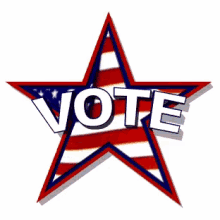

His Story...

Life as a black male in the 1890s demonstrates the continuity of racism despite having been afforded the privileges and immunities that came with the Fifteenth Amendment in 1870. Under the Fifteenth Amendment, the federal government prevents each state from denying a citizen the right to vote based on that citizen's race, color, or previous condition of servitude; however, this amendment was poorly put into practice. During the 1890s, America still remained divided between blacks and whites because white people did not want black people to advance socially, politically, and economically. White supremacy is a real thing of the 1890s, and controlled blacks’ way of life - black people had no voice in social affairs and politics because they were blacklisted as members of an inferior race. Organizations like the KKK, which is a white supremacist hate group, targeted African Americans on a daily basis - mocking black culture and lynching any black person who desired to become active in politics and voting. When a male turned eighteen years old in the 1890s, they were allowed to vote under the Fifteenth Amendment; however, the KKK made voting for African Americans become near impossible. The messages an eighteen year old African American male in the 1890s received in regards to voting was nothing but threats. Many messages were in the form of posters that showcased black lynchings and were hung on the walls of railroads - illustrating to African Americans the consequences that would follow if they decided to vote. Coherently, the KKK broke into many black peoples’ homes and threatened them to vote for the candidate whom the KKK wanted to win - and if the black person failed to comply with the request of KKK members, then they would be killed and their death would be showcased to the public. Many prominent civil rights leaders rose to power, such as Ida B. Wells, W.E.B Dubois, Booker T. Washington, and among many others. Wells and Dubois were on the side of black people; however, Washington advocated for the relinquishment of black voting rights in order to obtain economic prosperity. It is most important to note, though, that Wells makes a conscientious effort at showcasing negative voting messages in the pamphlets she created - she documents the real life struggles of voting as an African American during the 1890s to build a coalition of leaders who would fight against voting injustices. However, these pamphlets often deteriorated African American voter participation because African Americans were scared of the potential consequences that would follow after voting in elections. African Americans were the KKK’s biggest target - no person in their right mind wanted to do something to trigger the KKK off on them because African Americans feared even the thought of being lynched to death. For a country that praises that all men are created AND SHALL BE TREATED AS EQUAL, the injustices African Americans faced throughout the 1890s simply because of their granted right to vote is an absurdity in itself - there was no light that shined at the end of the tunnel for black people back in those days. Not only did organizations like the KKK deter African Americans from voting, but the states also did by permitting poll taxes and literacy tests that were near impossible to pass. White people were exempted from literacy tests because of the Grandfather Clause that was put into action - the Grandfather Clause exempted people whose grandfather was allowed to vote prior to the Fifteenth Amendment. So, you may be wondering, "Who was exempted from the Grandfather Clause?" I have an answer for you...ONLY WHITE PEOPLE.



* Showcased below are images depicting African American life in the 1890s. Being an African American male who was technically allowed to vote under the Fifteenth Amendment during this time came with a big price to pay. In attempts to demonstrate what I believe is an effective pedagogical methodology to informing you on the voting literacy of an eighteen year old African American male in the 1890s, I have incorporated some violent images to make you get a feel for what it felt like to be in the shoes of "an inferior." Many messages were in the form of posters depicting lynchings of black people that were hung all across the states to scare black people and to demonstrate white supremacist notions. Now, take a gaze through history and pretend that you are one of them as you look. If you were an eighteen year old African American male during the 1890s, do you really think that you still would have voted after seeing posters showcasing what the consequences are? I know I personally would not...








